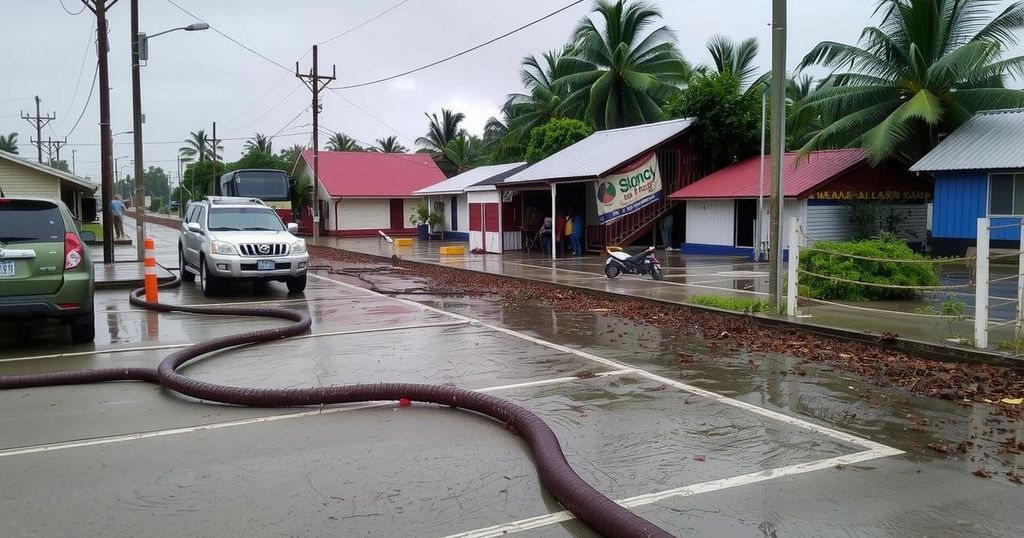The toll from Tropical Cyclone Chido has escalated in Mayotte and Mozambique, with at least 22 confirmed deaths in Mayotte and over 1,400 injuries. More than 200 Red Cross volunteers are feared missing. In Mozambique, 34 lives have been lost amid severe destruction. President Macron is expected to visit Mayotte as political tensions rise over immigration and disaster preparedness issues.
The devastating impact of Tropical Cyclone Chido continues to unfold in Mayotte and Mozambique, with local authorities reporting a rising death toll and significant destruction. The cyclone struck Mayotte, a French territory in the Indian Ocean, causing at least 22 confirmed fatalities and over 1,400 injuries, according to officials. More critically, the International Federation of Red Cross and Red Crescent Societies announced that more than 200 volunteers are currently unaccounted for. As rescue operations struggle to manage the urgent necessities of food, water, and medical aid, there are fears that the death toll could rise significantly, estimating thousands of victims due to the cyclone’s sheer ferocity.
The cyclone also impacted Mozambique, where the United Nations confirmed that the storm has resulted in at least 34 deaths and extensive damage, with nearly 24,000 homes destroyed. The local government in Mozambique is now grappling with the aftermath, having already faced humanitarian challenges prior to the cyclone.
In response to the crisis in Mayotte, President Emmanuel Macron is planning to visit the territory amidst rising political tensions regarding immigration policies and disaster preparedness. The situation has ignited a broader debate about the French government’s responsibility toward its overseas territories and their reaction to natural disasters exacerbated by climate change. Key local political figures have voiced concerns about the inadequacy of early warning systems and the ongoing struggles related to undocumented migrants who have been most affected.
The full scope of the destruction and human toll caused by Cyclone Chido leaves many challenges ahead for authorities and humanitarian organizations tasked with providing relief and support in both Mayotte and Mozambique.
Tropical Cyclone Chido has emerged as one of the most severe storms to affect Mayotte, resulting in unprecedented destruction and loss of life. As a French overseas department, Mayotte has experienced significant socioeconomic challenges, with high levels of poverty making the region particularly vulnerable to natural disasters. This cyclone has not only highlighted the challenges faced by these territories in terms of disaster preparedness but has also raised urgent questions regarding the response of the French government and the treatment of undocumented migrants during such crises. The cyclone’s ramifications have also extended to Mozambique, compounding the region’s existing humanitarian issues. Moreover, the calls for reform in immigration policy and disaster management underscore the deeper political tensions within France regarding its overseas territories and their support systems, especially in light of increasing climate-related disasters.
Cyclone Chido has had a catastrophic impact on both Mayotte and Mozambique, highlighting the urgent need for critical humanitarian assistance and a coordinated response to natural disasters. With rising casualties and ongoing recovery efforts, the incident serves as a stark reminder of the vulnerabilities in these regions, exacerbated by socioeconomic factors and climate change. The situation has provoked significant political discourse regarding France’s governance of its overseas territories and the implications of immigration policies on disaster response effectiveness.
Original Source: www.abc.net.au






